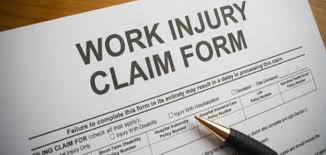
New Jersey law requires that all New Jersey employers not covered by federal programs have workers’ compensation coverage, or be approved for self-insurance. A self-insured employer has the option of administering its own workers’ compensation program, or contracting with a third party administrator to provide these services.
This requirement extends to out-of-state employers, who may need workers’ compensation if a contract of employment is entered into in New Jersey, or if work is performed in New Jersey. In return for the guaranteed benefits of workers’ compensation coverage, workers do not have the right to bring a civil lawsuit against an employer for pain and suffering or other damages, except in cases of intentional acts. This minimizes liability for employers.
New Jersey punishes employers severely who don’t provide workers’ compensation to their employees, even if there are no work-related injuries. Failing to provide workers’ compensation is a disorderly persons offense, and if the failure is knowing, it’s a crime of the fourth degree. Penalties can be assessed up to $5,000 for the first 10 days with additional assessments of $5,000 for each 10-day period of failure to insure after that.
Even more severe, in the case of corporations, liability can extend to corporate officers individually. The penalties pile on if there’s actually a work related injury or death. If an employer fails to provide workers’ compensation and a worker-related injury or death has occurred, the employer (which includes corporate officers) is directly liable for medical expenses, temporary disability, and permanent disability or dependency benefits.
Also, New Jersey law also provides for more civil penalties against the employer and its officers where a failure to insure is found. Court awards and penalties arising from these claims can become liens against the uninsured employer and its officers, which are generally enforceable against any assets belonging to them. So a failure to provide workers’ compensation can affect a company’s or an owner’s non-business assets.
If you’re an employer or a corporate officer, make sure you have workers’ compensation coverage for your employees. If not, there’s a heavy price to pay. Workers’ compensation insurance coverage can be gotten from any of the more than 400 authorized private licensed insurance companies in New Jersey. A policy can be purchased directly from an insurance carrier, an insurance agent, or an insurance broker. If you don’t have coverage, make the call today. Omar Bareentto is a 2016 Rutgers School of Law graduate and a former contributor to the Rutgers Business Law Review. He collaborated with me on this blog.

